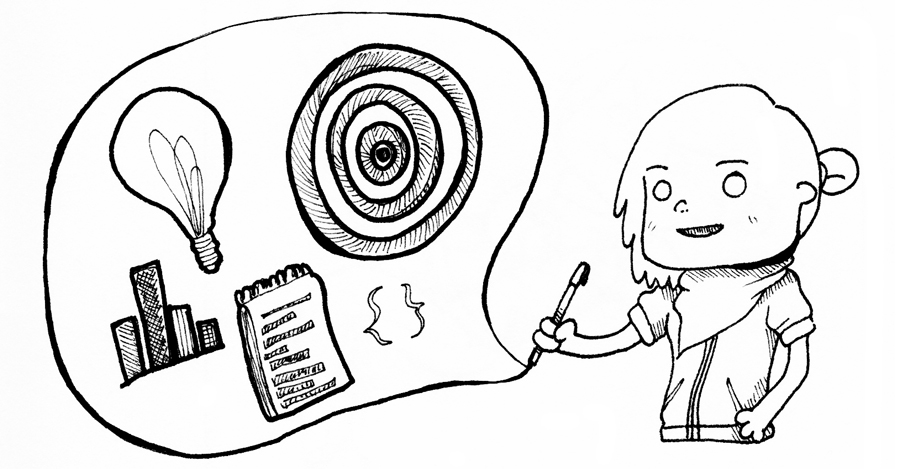How to become a public speaker in 1 year – Step 4: Write proposals

Good news, dear reader: if you’ve gotten this far, you are very close to getting your speaking ideas out there! Now you must focus on crafting a good proposal. Whether speaking at a school or conference, writing a proposal can help you clarify your concepts and ultimately improve the quality of your talk.
There are several different kinds of talks one can propose. Traditional presentations are usually between twenty and sixty minutes with the possibility of additional time for questions. Lightning talks are between five and ten minutes long with no time for questions. Panels, or discussions between three to five people, usually last about sixty minutes with time for Q&A. Many speakers consider panels to be the least amount of work because they involve more people and are less likely to need slide presentations.
Practice proposal writing
Get started by returning to the ideas you expanded upon in the previous post. If you are using the worksheets I created for this series, move to page 3. For each of your favorite ideas, create a title, expand your description sentence into five sentences, then turn your audience takeaways sentence into a list of three things audience members will learn.
With this exercise, you have covered most of what CFPs, or calls for proposals, request. Now is the time to edit and make your proposal(s) sound appealing. Read each one out loud. If you cannot talk about the proposed concept for at least thirty minutes, either continue editing and dive deeper into the subject or abandon it completely. Focus on the ideas that have the most potential to be accepted.
Good proposals
A good proposal sets the context in which it lives and succinctly explains what the audience will learn. In most cases, the learning lessons are directly applicable to either a job or hobby. Finally, it clarifies what level(s) the talk is being angled toward.
For example, here is a talk idea that got rejected:
Title: UX for Introverts - Building a Creative Space for Less Social Designers
Description: The environment in which you work strongly affects your ability to be creative and solve problems in innovative ways. This rings especially true for introverts, who begin to feel drained by overcommunication and overstimulation in loud, open places. Catt, a designer who is also an introvert, will help you find ways to improve your environment for introspective people and therefore build a better design team through designing spaces for introverts. Whether you are an introvert or just work with one, you’ll both benefit from attending this informative presentation on a topic that is rarely discussed.
What attendees can expect to learn: Ways to build a comfortable environment for introverts at work.
And here is a talk idea that got accepted at multiple conferences:
Title: Beyond Gamification: Lessons from Game Design for Engaging Users
Description: When UX designers think of techniques that have been borrowed from game design, gamification is often the first approach that comes to mind. However, the oversaturation of gamification in products we use every day can cause fatigue. Not every product needs a system of achievements. UX practitioners can learn so much more from game design. In this talk, we will explore other ways to engage users in our products via game design concepts without coming off as gimmicky.
What attendees can expect to learn: Ways to add fun into products without resorting to gamification, actions you can take to prevent feature creep in products & maintain simplicity, and how to make users feel like they’re getting the same experience across multiple platforms.
Note the difference in depth as well as practicality. The first proposal is a topic that is too specific but not practical for most design conference attendees. The second is more broad (but not too high-level) and contains information that might be useful for designers at any level.
Next step: Craft your bio
After your ideas have been fleshed out, they must be shared with your contacts. You will learn to create a bio in the next post so your proposal will be ready for submission.
Upcoming talks
-
Staff designer: Grow, influence, and lead as an individual contributor
At some point in your career, you'll likely have to choose between senior individual contributor (IC) and design management roles. But what if you don't want to manage others? What if you’d rather continue as an expert contributor? In this talk, we’ll take a deep dive into staff/principal designer roles—a combination of team leadership and in-the-pixels design work—all without any direct people management. Learn how you can advocate for, grow into, and succeed in such IC leadership roles.
Want to talk?
Got feedback, looking to suggest a future writing topic, or want to invite me to speak at your organization? Send me a message and I'll get back to you as soon as possible!